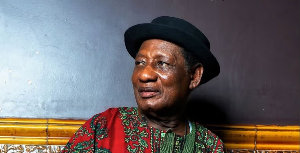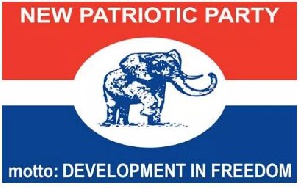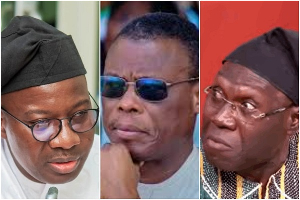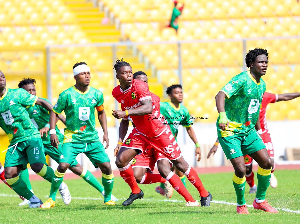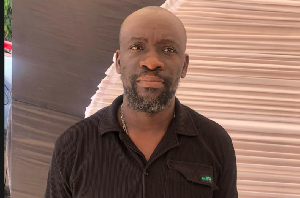Last week, I read about a constitutional amendment to be submitted at the Extra-Ordinary Delegates’ Conference of the ruling National Patriotic Party (NPP) to exclude party members in the Diaspora from contesting national executive positions.
The proposal was strongly opposed by the Diaspora branches and as this matter was of interest to me, though not a member of the party, I decided to follow the development at the conference on Sunday December 16, 2017.
What was unknown then were other hideous and more anti-democratic and dictatorial constitutional amendments to be tabled at the conference. This short article is a review of one of the most despotic constitutional amendment ever proposed by a political party under the Fourth Republican Constitution.
I was listening to President Nana Akufo-Addo’s speech when he pronounced that three of the proposed constitutional amendments had been rejected outright and withdrawn. The most alarming was a constitutional amendment for the party’s MPs to appoint constituency executives of the party. In fact, when I hear it I thought the president had made a mistake. A party that claims to be the cradle of democracy in Ghana, tracing its roots from the Busia-Danquah tradition and forming alliance with conservative parties across the developed democracies, to even dream of, let alone make such a proposal by no other group within the party than the elected representatives of the people in parliament, is beyond madness.
What also shocked me was the fact that, the party leadership allowed such communist proposal to be discussed at all, be accepted and included as agenda items for the extra-ordinary conference. The question is, what the hell were the National Executive and Council of Elders thinking if the party MPs have gone bonkers?
This dictatorial and “kim jong-un” style diktat by unashamed and dishonourable MPs of the party raises a number of questions not only about Ghana’s democracy but democracy as a whole in Africa.
First, is the problem of how parliamentary candidates are selected every four years by political parties in Ghana, especially the two main parties, NPP and NDC. This is compounded by the fact that being a member of parliament in Ghana is the most lucrative political career because at the end of the parliamentary term, whether an MP retires, is re-elected or not, all MPs are paid handsome ex-gratia that public workers with thirty or forty years continuous service can never aspire to. Until the four yearly ex-gratia awards to all MPs is reformed so that it is only paid to MPs who retire or lost their seats, the urge to be parliamentary candidate will continue to haunt sitting MPs, irrespective of their performance, the party or constituency they represent.
The other question is, do Ghanaians really understand and believe in western democracy? If so, why would elected MPs of the people who are at the pinnacle of the democratic dispensation seek to introduce dictatorship and undermine democratic representation through elections? What the MPs sought to do is to eliminate any competition to secure their positions as MPs for life. This is because, constituency executives are very important and play powerful roles in the election of the parliamentary candidates through the primaries. Therefore, had their proposal been accepted, NPP MPs would have had the sole responsibility for appointing their cronies who would ensure that every four years sitting MPs are re-elected at the primaries by whatever means to enable them become MPs for life. In fact, in such scenarios, many would be elected by acclamation or unopposed. I am not sure if even former communist parties in the Soviet Union and Eastern Europe had such system that NPP MPs sought to introduce in twenty-first Century Ghana.
This proposal by NPP MPs also raises the question of what could happen should NPP secure two-thirds majority in the legislature. Could they use their two-thirds majority to change the constitution and introduce more dictatorial legislation such as changing the constitution to allow for a president from the party to contest for more than two terms permitted by the Constitution and plunge the country into conflict? In fact, the proposal by the party to change their constitution to make an incumbent president from the party, party leader and automatic presidential candidate together with MPs’ wish list suggest that, NPP MPs would vote for such constitutional amendment if an incumbent president from the party proposes to do so to allow him or her to contest more than two-terms.
The behaviour of NPP MPs explains why there have been and there are still too many despots in Africa. MPs from the ruling party in Rwanda voted to change the country’s constitution to allow Paul Kagame to run for president after two terms and currently, MPs from the ruling party in Uganda are doing the same by voting to remove the age limit to allow Museveni to contest as president again. What NPP MPs did is an indication that they could do the same in Ghana if they had two-thirds majority. This should be a worry to all Ghanaians. I used to say that what happened in Rwanda and is happening in Uganda will never happen in Ghana. After NPP’s proposed constitutional amendments, though rejected, I no longer hold such views.
They were rejected because the president said no to them. Imagine a situation where the president had dictatorial tendency and had made all the three rejected proposals to the party. What would have happened? The delegates supported by the National Executive, Council of Elders and MPs would have would have voted for it.
The MPs’ behaviour is not only anti-democratic but shameful and despicable. It puts not only NPP but Ghana in a bad light. It also shows that NPP pretends to be democratic when in reality, by these actions they are not. In fact, they do not understand democracy and given the chance, they could introduce dictatorial laws, rules and regulations to suit their political ambition of ruling the country for as long as they want.
Another important question the MPs failed to envisage is, would such constitutional amendment have been in tandem with the 1992 Constitution? Did the MPs, think about this before their selfish and parochial proposal? Were they aware that any action or omission by a registered political party in Ghana must comply with the 1992 Constitution? Yet, there are Barristers among the MPs who made this unconstitutional proposal.
NPP MPs should bow down their heads in shame for wanting to appoint constituency executives for the sole purpose of extending their stay in parliament. They are dishonourable despots. In fact, had this happened in a truly democratic society, all the MPs would either be recalled or deselected by their constituencies at the next election. But in Ghana where NPP is pretending to be a democratic party but exhibiting communist inferior tactics, nothing will happen and it would be business as usual. Democracy is dead on arrival in Ghana.
Opinions of Sunday, 24 December 2017
Columnist: Kofi Ata, Cambridge, UK
Are NPP MPs anti-democratic or insane?
Entertainment
